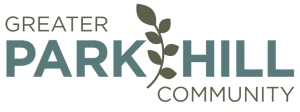On the Statewide Ballot
A review of the tax increases proposed this November
By Erin Vanderberg
Editor
Two statewide measures will be on the November 5, 2013 ballot: Amendment 66 and Proposition AA. Both measures involve legislation that passed by the legislature and signed by the Governor, but which include taxes that cannot be imposed without voter approval, pursuant to the Taxpayer’s Bill of Rights (TABOR). The 2013 State Ballot Information Booklet produced by the Legislative Council of the General Assembly, otherwise known as the Colorado Blue Book, was used as the source of information for this article.
Amendment 66: Funding for Public Schools
Amendment 66 would modify how the state funds public preschool through 12th grade education
If passed, Amendment 66 would establish a constitutional minimum funding level of 43 percent of state income, sales and excise tax revenues to be annually deposited into the State Education Fund and used only for public education. It would also create a two-tiered individual income tax rate of 5.0 percent on the first $75,000 of taxable income and 5.9 percent on income earned above that threshold – which is up from the existing flat individual income tax rate of 4.63 percent.
The measure would implement Senate Bill 13-213, co-sponsored by Park Hill’s State Senator Michael Johnston, passed by the legislature and signed by the Governor, which rewrites the state’s public school finance formula. Under the bill, the per pupil dollar allotment is adjusted to place emphasis on preschool and kindergarten students as well as students eligible for free- or reduced-price lunches and English language learners. The bill also changes the way student enrollment is calculated, by using an average daily enrollment instead of a point-in-time survey taken in October. Under the bill, school principals will have more budgetary control and periodic studies of student achievement as well as publicly-available, school-specific accounting of administrative and teacher expenses will be required.
Proponents of the measure say that it is an innovative solution to address public school problems. They say it is an investment in Colorado’s economy and a safeguard against budget shortfalls for education. They say the transparency mechanisms required under the measure will provide a better tool to track and compare school performance. The Secretary of State’s office lists the registered issue committees in favor of this measure as Colorado Commits to Kids and Greeley Commits to Kids.
Opponents of the measure say that it represents a $950 million tax increase which could hinder the state’s recovery from the recent recession. They say the taxes will not guarantee increased academic achievement because they come with no educational reforms. They say tax revenue from some districts will be used to subsidize public education in other districts. The Secretary of State’s office lists the registered issue committees opposed to this measure as Coloradans Against Unions Using Kids as Pawns and Coloradans for Real Education Reform.
Proposition AA
Proposition AA would create an excise and a sales tax on retail marijuana
If passed, Proposition AA would impose a 15 percent excise tax on the wholesale price of retail marijuana when it is first sold or transferred by a retail marijuana cultivation facility; the first $40 million dollars of which would be directed toward a public school construction fund known as the Building Excellent Schools Today (BEST) program. The measure would also impose a 10 percent state sales tax, in addition to the existing 2.9 state sales tax, on all forms of retail marijuana sold to a customer. While cities and counties may ban the sale of retail marijuana within their boundaries, those that allow sales of retail marijuana will receive 15 percent of the sales tax revenue collected on marijuana purchases made within their boundaries.
The measure would implement House Bill 13-1318, which set forth two tax rates and was passed by the legislature and signed by the Governor this past legislative session. Under the bill, the state legislature is allowed to increase or decrease the excise and sales taxes so long as neither exceeds 15 percent.
Regardless of whether the measure passes, existing medical marijuana stores will be eligible for a retail marijuana license after January 1, 2014, and all applicants will be eligible for a license after October 1, 2014, where no local ban is in place. This licensing structure was designed to give the Department of Revenue’s Marijuana Enforcement Division time to process an existing backlog of medical marijuana license applications.
Proponents of the measure say that the majority of Colorado voters approved Amendment 64 on last year’s ballot, and passage of the measure should generate the revenue necessary to support the regulation of the marijuana marketplace. They say the excise tax proposed by the measure will address critical school construction needs in the state. The Secretary of State’s office lists the registered issue committee in favor of this measure as the Committee for Responsible Regulation.
Opponents of the measure say that the new state taxes may be so high that they drive the consumer back to the untaxed underground market. They say that the sales tax was not anticipated by proponents of Amendment 64, which intended to create only the excise tax. They say that licensing fees and the existing 2.9 percent state sales tax should adequately satisfy essential requirements to regulate the industry. The Secretary of State’s office lists the registered issue committee opposed to this measure as No Over Taxation.
For additional ballot information, visit coloradobluebook.com. Legislative Council Staff also created an online tax calculator which allows taxpayers to estimate how proposed tax changes under Amendment 66 will affect their household income. Visit the calculator at colorado.gov/lcs/taxestimator.

